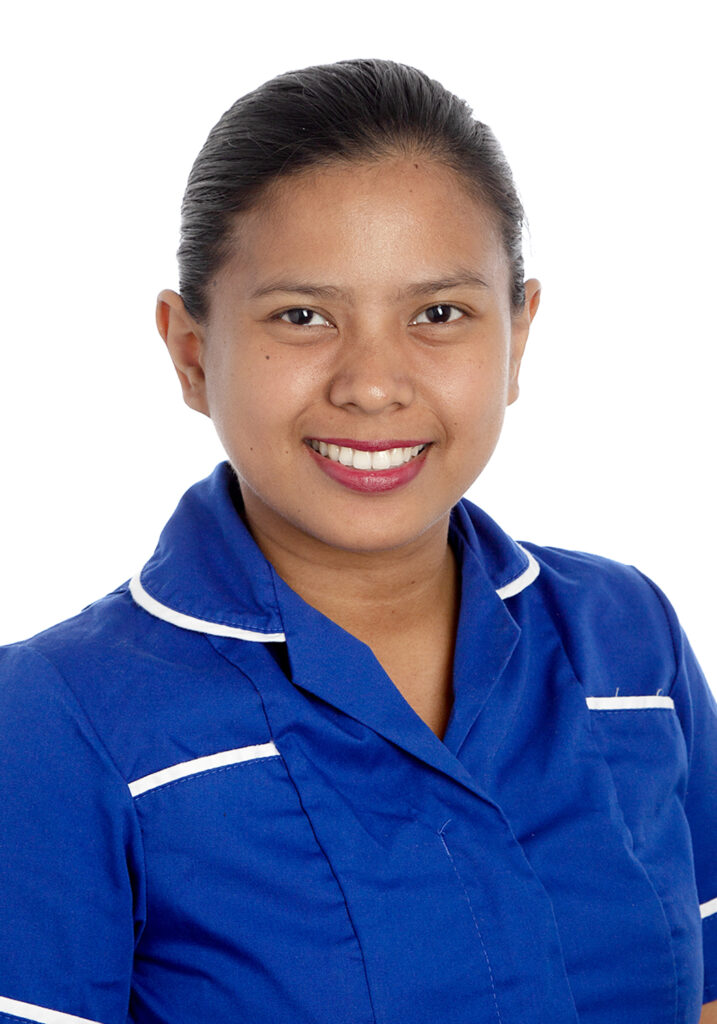Celebrating women’s achievements for International Women’s Day: Cherry’s story
March 8th is International Women’s Day (IWD). And to mark it, we interviewed Cancer Research UK Senior Research Nurse Cherry May Sanchez, who sees the day as not only an opportunity to celebrate the great contribution of women in science – but also an occasion to encourage more women to take part in research.

Cherry May Sanchez, Cancer Research UK Senior Research Nurse
After working in numerous departments, Cherry May gained a lot of nursing experience but hadn’t quite found her specialty.
So when an opportunity to work in research came along, Cherry jumped at it – and finally found her true nursing vocation.
Cherry, how did you begin your research career?
I’d been a nurse for ten years across several departments, which gave me the skills and confidence I needed to develop professionally.
Then I started working as a research nurse at the Cambridge Cancer Trials Centre (CCTC) women’s team. I was responsible for the delivery and management of different breast- and gynae-oncology studies. A couple of years later I was then given the opportunity to lead and manage the team. It really felt like I had found my specialty and where I was meant to be.
What did your role as team lead for the CCTC women’s team involve?
Leading the CCTC women’s team was varied. I worked on my own portfolio of trials, making sure they were safe and effective.
I coordinated with study recruitment leads, Research and Development and the study set-up team, to look for improvements and facilitate trial delivery of our team’s portfolio.
A major part of my role was working and networking with sponsors, the National Institute for Health and Care Research (NIHR) and the NIHR Clinical Research Network (CRN) Eastern. I collaborated with the NIHR and NIHR CRN Eastern teams so that patients could easily get information about different trials they could take part in.
It’s important to make sure we have a varied portfolio of breast- and gynae-oncology research available to our patients. The portfolio includes academic, clinical trials, translational, and observational studies. A balance of mixed trials means there is a research study option available on every aspect of patient experience (from diagnosis, treatment, to follow-up), and every type of breast and gynae cancer.
What made you want to be a research nurse and how did you get started?
Research is my passion even going back to when I was training to be a nurse. I’m fascinated by the complex yet vital contribution it brings to practice.
When I started working as a research nurse I went on Health Education England’s Integrated Clinical Academic Programme. I was awarded the Bronze Award for a Pre-Masters Internship in Clinical Research at the University of East Anglia. This was an excellent foundation, enabling me to build my research network and expand my understanding of clinical research application.
Working in cancer research means you have the opportunity to play a vital role in supporting cancer patients in their treatment pathways, especially those with limited treatment options.
What has been the highlight of your nursing career so far?
It’s yet to begin! I have recently taken on the Cancer Research UK Senior Research Nurse position. In this role, I will be co-directing the Nurses and Allied Health Professionals (AHP) Foundation Programme at the Cancer Research UK Cambridge Centre. This will be a good platform to support nurses, AHPs and research practitioners who support cancer research, in their training needs and development pathways. And I am really excited about the new Cambridge Cancer Research Hospital being planned next to Addenbrooke’s, which will bring together clinical and research expertise in a new-world class hospital for the East of England to detect cancer earlier, treat it more precisely and save more lives.
It’s International Women’s Day on 8th March, why do you think this day is important?
Representation or equality is one of the priorities of cancer research in the country. This not only affects patients, but also staff members working in research.
International Women’s Day is a day to celebrate the great contribution of women in science and also amplify the need for more women to take part in research.
Why is it important for more women to work in research?
Women deserve a spot in research. The mother of modern nursing, Florence Nightingale, paved the way for the importance of women in research. Her work on the Modern Nursing Theory focused on the role of environment in healing and health, and made great contributions in evidence-based research.
Like Nightingale, women of this day continue to play an important role in research to balance perspectives, emotional understanding and support. Our ideas and contribution are vital in creating gender perspectives to identify and minimise possible gender biases, preferences and personal interests of the researchers. We must acknowledge and trust our abilities, take risks and be empowered leaders in this field.
What advice would you give someone who wanted to have a career in research?
Research is not the average desk job it’s thought to be, and the fulfilment the job brings is far greater. There are different areas in research you can work in, from recruitment, coordination to treatment. Speak to people working in research, and never be afraid to ask to shadow in the area. This would be a good opportunity for you to explore your options, and get a good understanding of which research area you are most suitable with.
Above all, research is fulfilling, motivating and exciting. Never be afraid to try new things!


